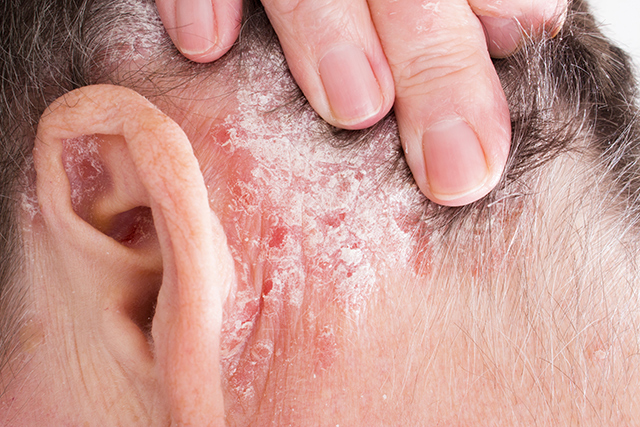A treatment guide to psoriasis: What you should and shouldn’t do
08/21/2018 / By Zoey Sky

A patient with psoriasis, a chronic autoimmune disease, suffers from a rapid buildup of cells on the surface of the skin. The skin may form red patches and scales, which can often be itchy and painful.
While treatment for the condition can help address its symptoms, the following tips can help make these treatments more effective.
Psoriasis treatment dos
- Consult a reliable healthcare professional – To properly deal with psoriasis, which can’t be cured, you must talk to a trusted medical expert so they can give you proper guidelines. Delaying treatment can make the condition more difficult to deal with.
- Follow a proper diet – Add more foods rich in omega 3-fatty acids to your diet, which can help improve your condition. Sources include flax seeds, olive oil, pumpkin seeds, and walnuts.
- Get some sunshine – Ultraviolet (UV) rays from sunlight can help slow the growth of the skin cells. Taking walks when the sun is up can help “soothe, improve, and even heal” psoriasis. Take a walk when it’s sunny at least twice or thrice a week. Don’t forget to use organic sunscreen to protect your skin.
- Use moisturizers – Using a moisturizer daily is crucial to effectively treating psoriasis. Symptoms of the condition, like excessive scaling and skin dryness, flaking, and itching, can be addressed with a moisturizer. Try using a natural moisturizer like coconut oil, which is good for both dry hair and skin. Apply a small amount of coconut oil on your skin the same way you would use a moisturizer. It can also be used as a scalp treatment to help loosen psoriasis scales.
Psoriasis treatment don’ts
- Don’t drink or smoke – Drinking and smoking can weaken your immunity and this may result in flares. Consult a healthcare professional for tips on how to ultimately quit these habits.
- Don’t eat certain foods – While psoriasis isn’t a dietary disease, there are some unhealthy foods that can affect your overall health. Avoid or limit your intake of artificially flavored foods, dairy products, fatty foods, and processed foods to treat psoriasis symptomatically.
- Don’t give in to stress – Stress and worries are a normal part of life, but they can have more severe side effects in a patient with psoriasis. Stress may trigger an inflammatory reaction, and this stress response can cause a psoriasis flare-up. Try meditation and yoga to manage your stress.
- Don’t scratch your skin – Itchy skin is a symptom of psoriasis, but you must resist the urge to scratch. This may tear open your skin and result in infections caused by germs. Scratching can also cause sores to develop in other body parts. You must also keep your nails short. Instead of scratching, gently apply some natural moisturizer to the itchy areas.
- Don’t use products that are harsh on the skin – Use gentle and natural soap so your skin won’t become dry and irritated. Don’t brush your hair too much to irritate any lesions on the scalp because this can cause burning and itchiness. (Related: Psoriasis – Here are Latest Herbal Medicines To Treat Psoriasis.)
Keep these tips in mind to effectively deal with the common symptoms of psoriasis.
For more tips on how to naturally treat other skin conditions, visit Remedies.news today.
Sources include:
Tagged Under: chronic autoimmune disease, disease treatments, Diseases, dos and don'ts, moisturizer, natural ingredients, natural products, Personal care products, psoriasis, remedies, skin care, sunlight



















